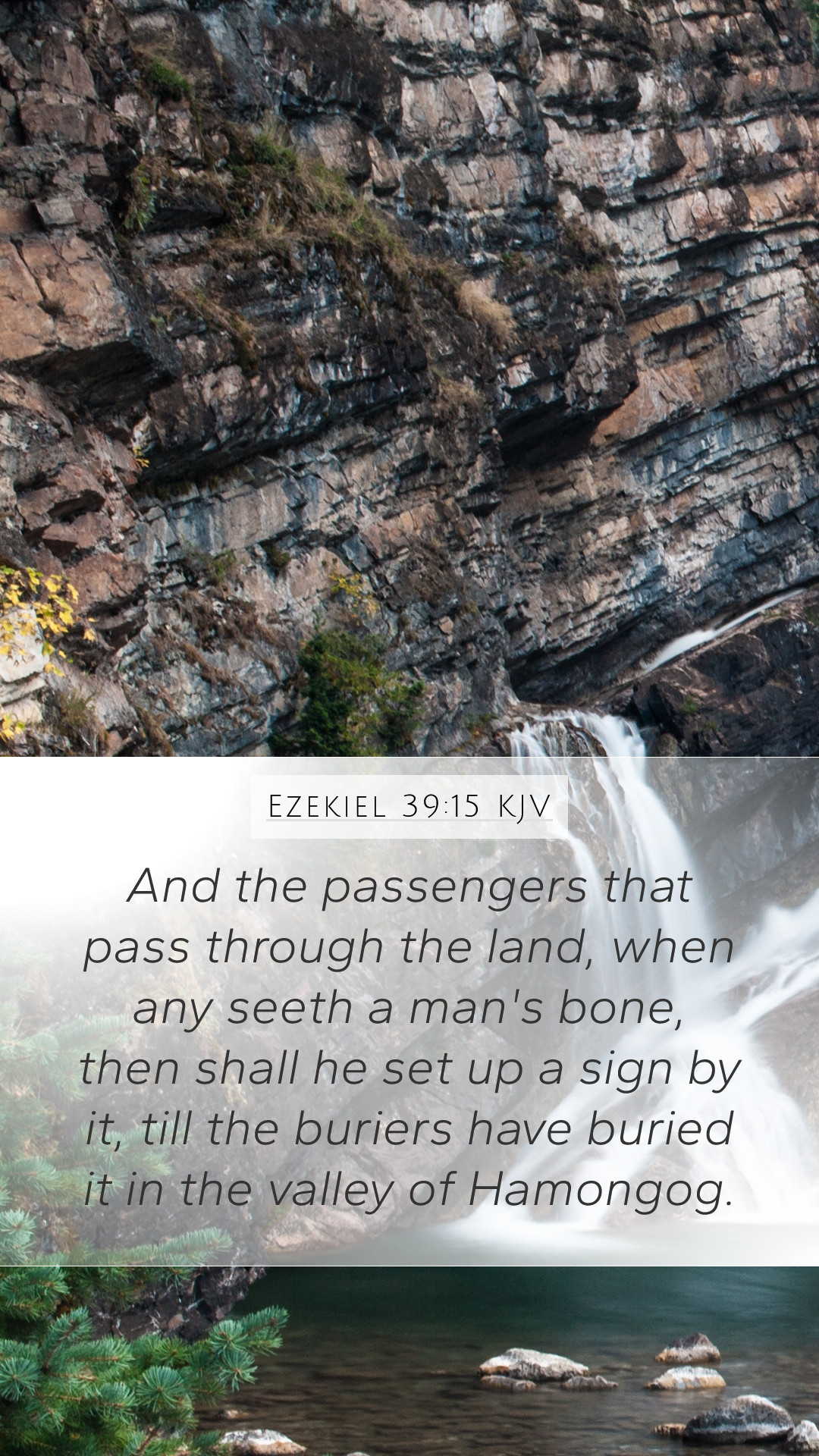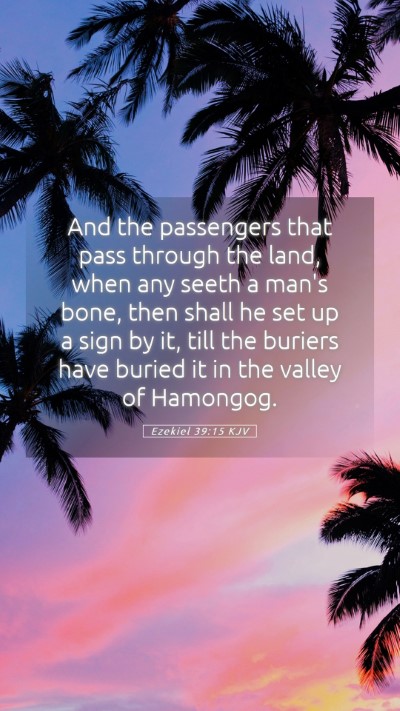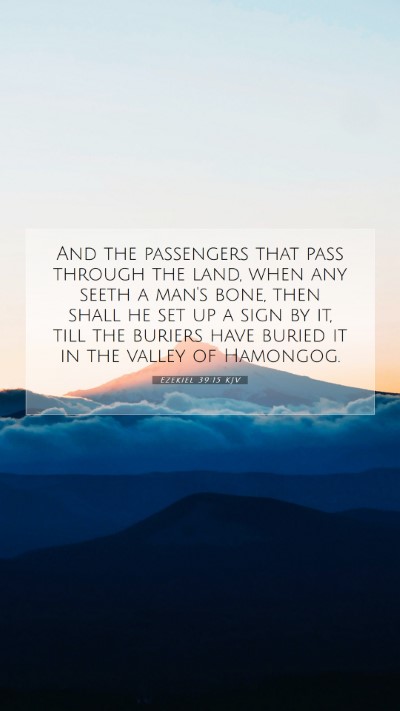Ezekiel 39:15 Meaning and Commentary
Ezekiel 39:15 states: "And the passengers that pass through the land, when they shall see a man’s bones, they shall set up a sign by it, till the buriers have buried it in the valley of Hamon-gog."
This passage engages with themes of divine judgment and restoration. To understand this verse fully, we can delve into insights from several public domain commentaries including those of Matthew Henry, Albert Barnes, and Adam Clarke.
Summary of Ezekiel 39:15
In this verse, the imagery of bones left in the open symbolizes the devastation that follows divine wrath. The act of setting up a sign indicates a profound recognition of the judgment that has occurred. The sign serves both as a warning and a memorial, underscoring the seriousness of sin and the consequences that follow.
Insights from Commentaries
-
Matthew Henry:
Henry interprets this verse as representing the thoroughness of God's judgment. According to him, the presence of the bones signifies the complete destruction of the enemies of Israel. The need for buriers reflects God's attention to the details of restoration after calamity, indicating a time when Israel will be gathered and restored.
-
Albert Barnes:
Barnes emphasizes the prophetic nature of this passage, suggesting it points to the eventual fate of those who oppose God’s people. The act of marking the bones serves as a discussion point for future generations about accountability and the reality of divine justice. He recognizes this as a call to both remembrance and warning.
-
Adam Clarke:
Clarke notes the cultural practices surrounding burial in ancient times, suggesting that the act of marking and burying bones was an essential part of honoring the deceased. He argues that this verse illustrates God’s desire for decency even amidst judgment and may symbolize hope for the restoration of God’s people.
Bible Study Insights
Through the lens of various commentaries, Ezekiel 39:15 serves as a reminder of God’s sovereignty in both judgment and restoration. The implications go beyond the historical context and into personal application as believers are encouraged to reflect on the significance of sin and the importance of repentance.
Related Themes and Applications
-
Judgment and Restoration:
The overarching theme found in Ezekiel includes the dual aspects of God’s justice and mercy. Understanding scriptural implications of judgment informs modern believers about living righteously and the hope found in God’s grace.
-
Remembrance and Warning:
As observers of the passage's implications, contemporary Christians are urged to remember the lessons found within scripture to avoid the pitfalls of disobedience and complacency.
Cross References
-
Ezekiel 39:12: Discussing the burial of the slain and indicating the magnitude of God’s judgment.
-
Revelation 20:9: The final judgment and the fate of the ungodly which echoes similar themes of judgment depicted in Ezekiel.
-
Isaiah 66:24: The remnants of the fallen represent eternal consequences for those who oppose God.
Conclusion
Ezekiel 39:15 invites profound contemplation on divine judgment and the grave reality of sin. Through careful study and analysis, believers are equipped to engage with scripture dynamically and apply its truths to their lives.


